Choosing the right skincare is even more important when you’re pregnant as common chemicals found in some products can potentially harm you and/or your baby.
Scientific research has led to a better understanding of these chemicals and their effects on our skin, so it’s easier to narrow down your choices to find the right products for you. Some changes you might experience during pregnancy include dehydrated skin, dry patches, acne breakouts, dark spots, discoloration and stretch marks – you know, all the fun stuff.
On with the common mistakes…
1. Don’t use any form of retinol or vitamin A
Retinol is also known at vitamin A, and can be harmful to your growing baby. It’s better to avoid products containing retinol altogether, and stick with alternative anti-ageing ingredients that are safer. Vitamin C, peptides and antioxidants are safe retinol alternatives to use when you’re pregnant.
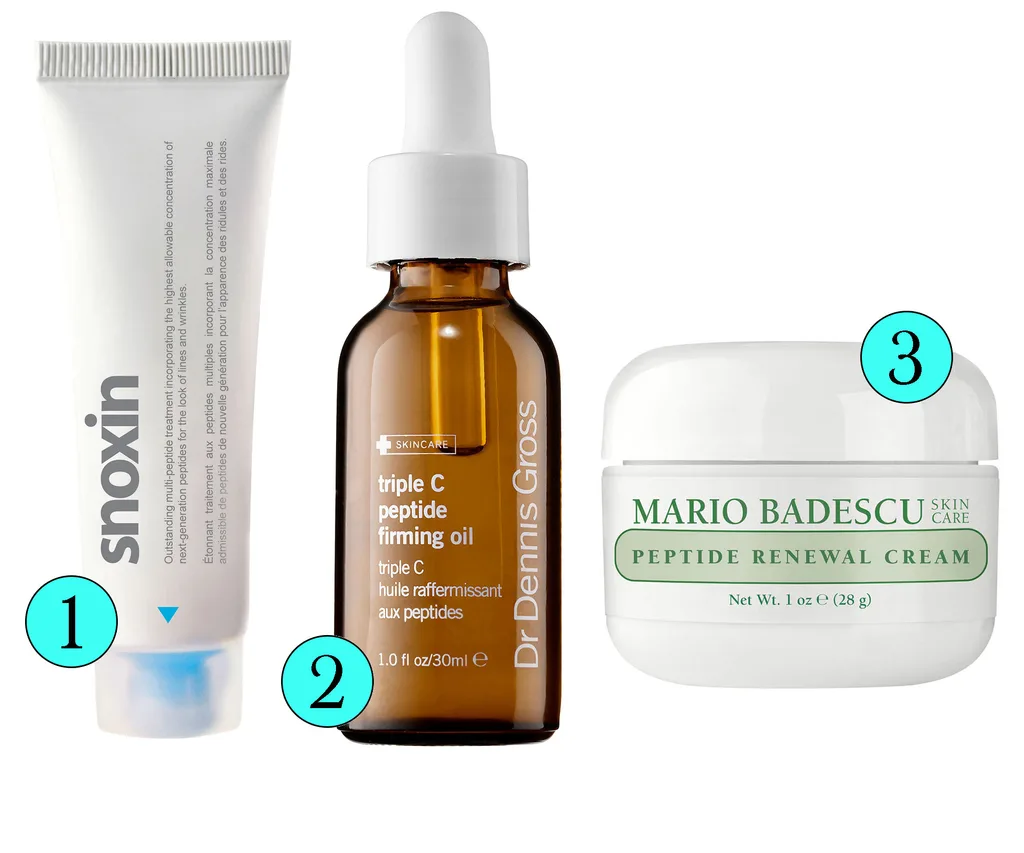
1. Indeed Laboratories snoxin, $39.99
2. Dr. Dennis Gross Triple C Peptide Firming Serum, $90
3. Mario Badescu Peptide Renewal Cream, $50
2. Skip salicylic acid
Salicylic acid and benzoyl peroxide are top level ingredients for acne treatment, but unfortunately aren’t widely recommended for use during pregnancy. Some studies may suggest otherwise, but if you’re looking to play it safe, there are other acne-fighting options.
Dioic acid and colloidal sulfur both can help with preventing and treating acne, as well as individual blemishes.
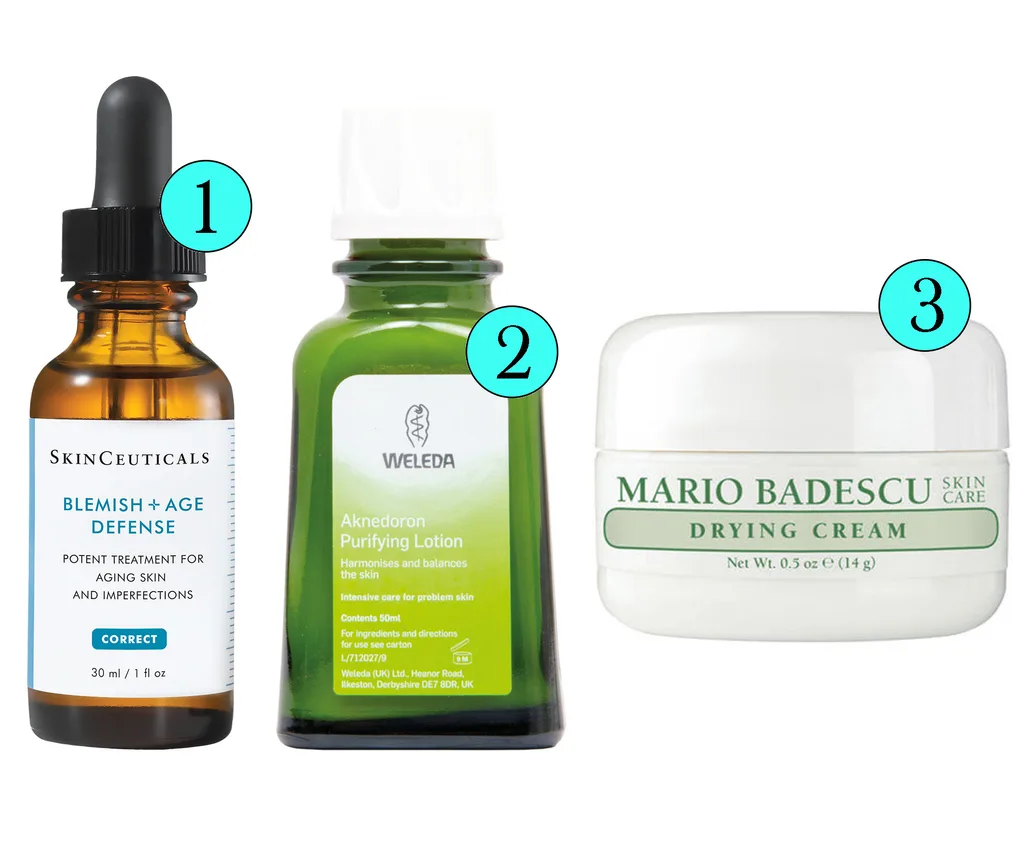
1. SkinCeuticals Blemish and Age Defense, $98
2. Weleda Aknedoron Purifying Lotion, $25.95
3. Mario Badescu Drying Mask, $26
3. Swap to physical sunscreen over chemical
Sunscreen is your first line of defence against ageing, and is particularly vital if you’re suffering hyperpigmentation. When choosing a sunscreen (which you no doubt know you should be applying every day, even if it’s cloudy) go with a cream, physical sunscreen and not an aerosol or spray which you could inhale.
A physical sunscreen uses natural ingredients such as zinc to physically block UVA/UVB rays reaching your skin, whereas a chemical sunscreen uses a chemical reaction to absorb the sun.
One of the main differences is application. Chemical sunscreens must be applied onto clean skin to work, under your entire product routine (yes, even your serum) and are only effective 20 minutes after application. Chemical sunscreens may also trigger pigmentation, however more research is needed to confirm this.
Physical sunscreens can be applied on top of products applied to the skin and blocks the sun immediately upon application. New formulas are not like the thick and white cream of the ’90s, and often blend seamlessly into the skin.
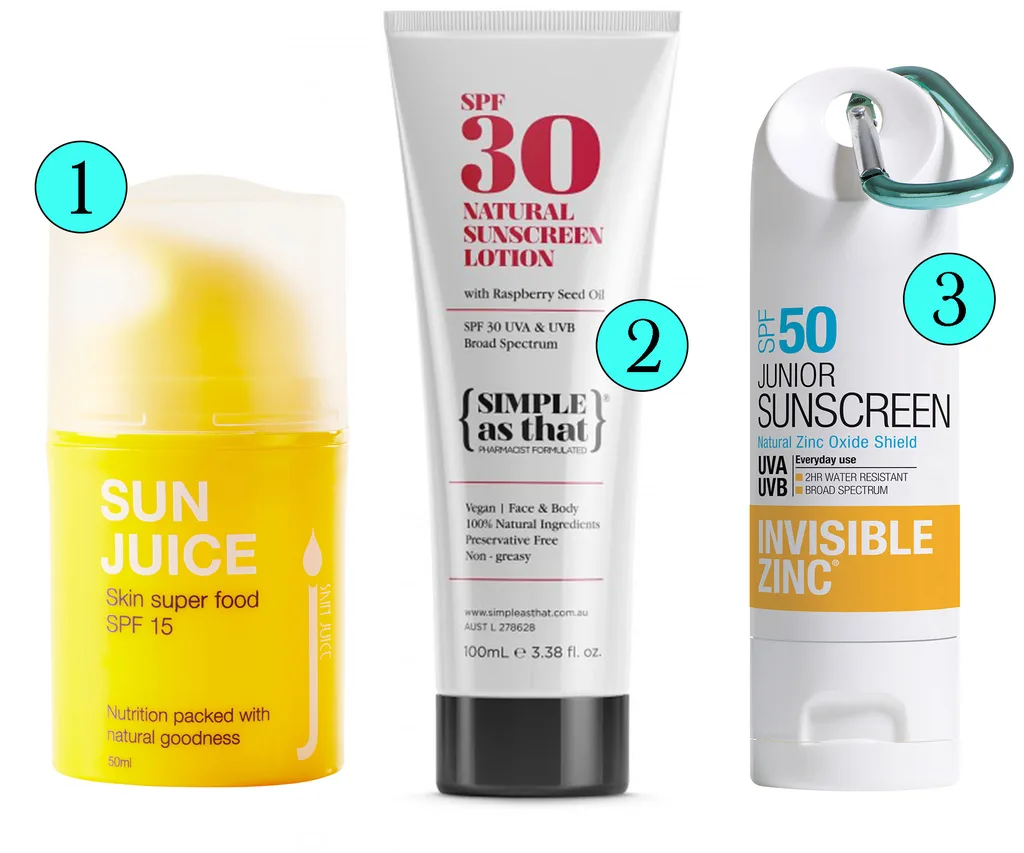
1. Skin Juice Sun Juice SPF 15, $49.
2. Simple As That SPF 30+ Natural Sunscreen Lotion, $29.95.
3. Invisible Zinc Junior Clip-On Cream SPF50 UVA-UVB, $17.99.
4. Postpone your injectables appoinment
Dermal fillers might be relatively safe when you’re not pregnant, but there have been no studies done to confirm they are safe to undergo when expecting. Avoid any complications by postponing all your treatments until after the baby is born, and stick to approved topical products while pregnant if you’re looking for an anti-ageing treatment.
5. Use cream or mousse fake tan, not spray
We all love a sun-free, fake tan glow but the active ingredient (that one that makes you look tan) is DHA and might be potentially harmful if inhaled, although no clinical studies have confirmed this. Steer clear of spray-on fake tan (professional or at-home) and opt for a cream or mousse formula instead.
Even though an at-home, spread-on lotion still contains DHA, you won’t inhale the chemical. To be extra vigilant, cover your mouth and nose while applying the cream, always wash your hands after and check with your doctor if you have any concerns.
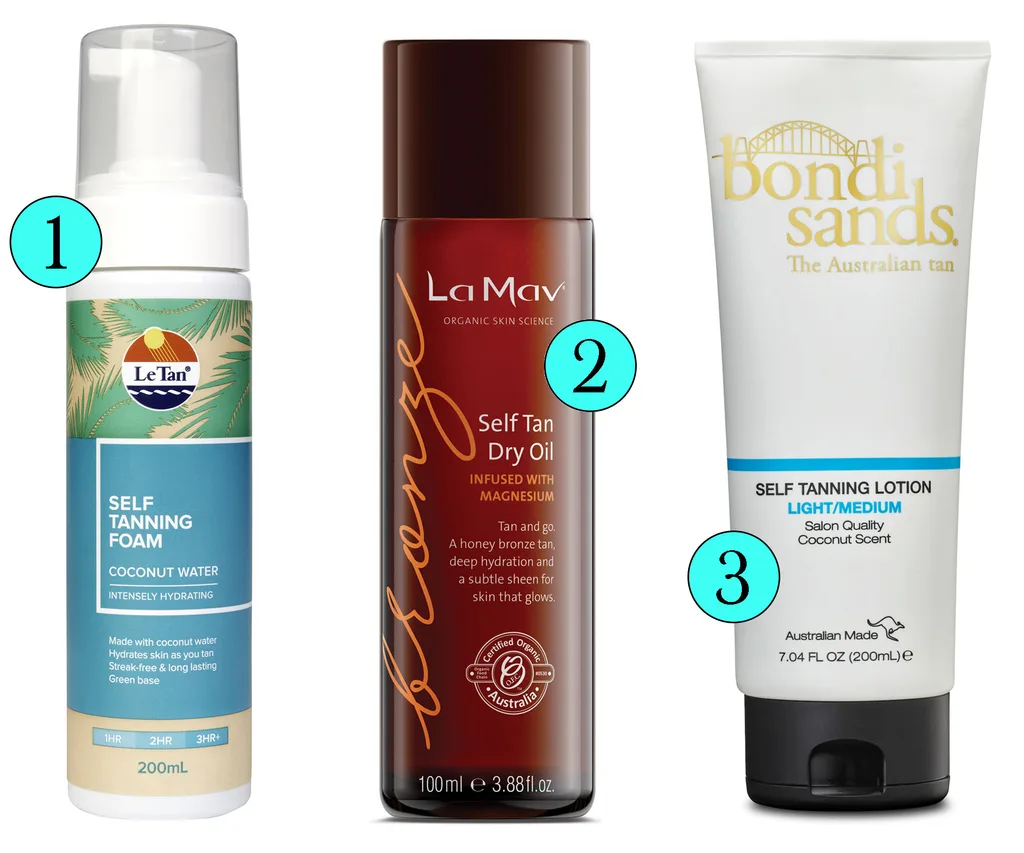
1. Le Tan Coconut Water Self Tanning Foam, $19.99
2. Bronze by La Mav Self Tan Dry Oil, $44.95
3. Bondi sands Self Tanning Lotion in Light/Medium, $19.95
6. Hold off on using hydroquinone
Hydroquinone is a skin-lightening ingredient and it’s been estimated that 35 to 45 per cent of the chemical is absorbed into your system following topical application. This means is could have a damaging effect during pregnancy, and should be avoided in all cases.
If you are suffering from hyperpigmentation and melasma, use a physical sunscreen and vitamin C to treat it until you have given birth.
7. Forgo formaldehyde formulas
Nail polish has come along way since the gloopy formulas of yesteryear. These days, nail polish is safer to use than ever before because of the removal of potentially harmful ingredients such as formaldehyde resin, camphor, ethyl tosylamide and xylene.
According to the Centre for Disease Control (CDC) formaldehyde can be potentially dangerous when pregnant as it can cause miscarriages.
Some nail polishes still contain formaldehyde, so always check the label and look for the words 5-Free, 6-Free, 7-Free and 8-Free which mean they don’t contain formaldehyde.
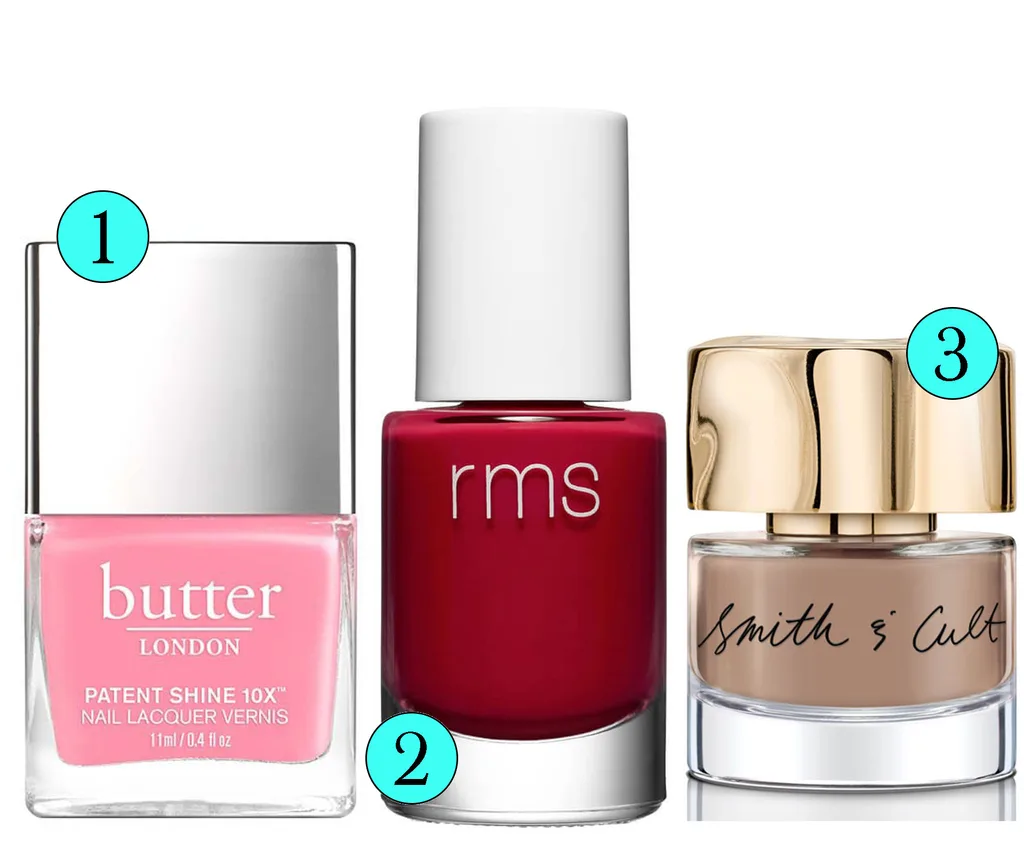
1. Butter London Patent Shine 10X Nail Lacquer in Fruit Machine, $25
2. RMS Beauty 6-Free Formula Nail Polish in Beloved, $22
3. Smith & Cult nail lacquer in Honey Hush, $32



